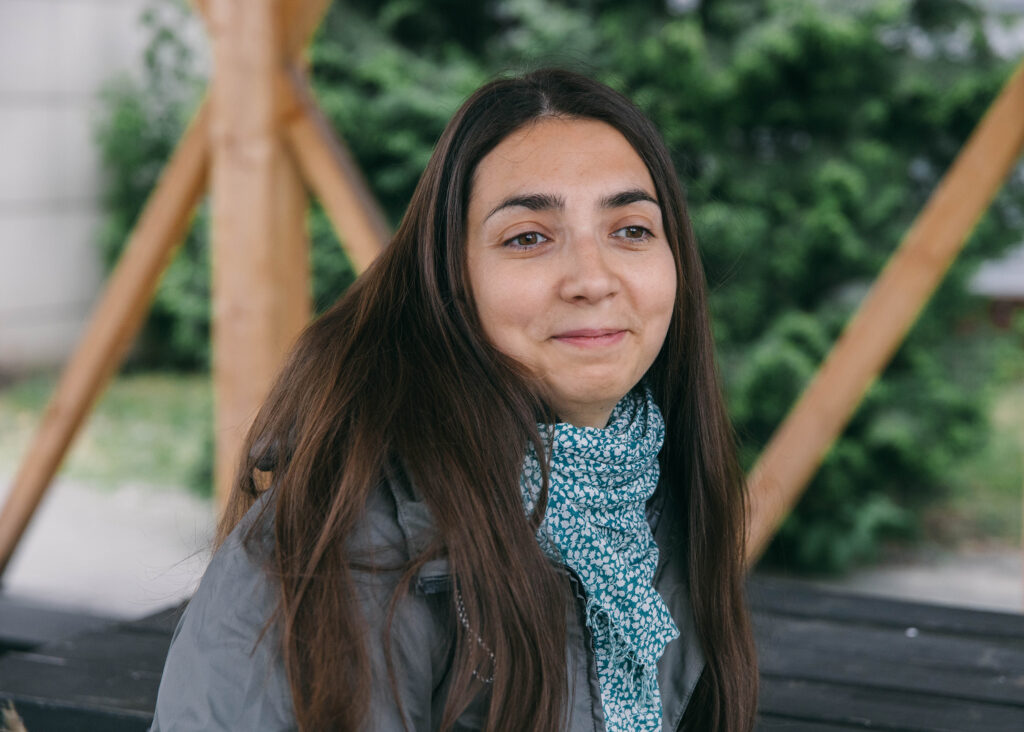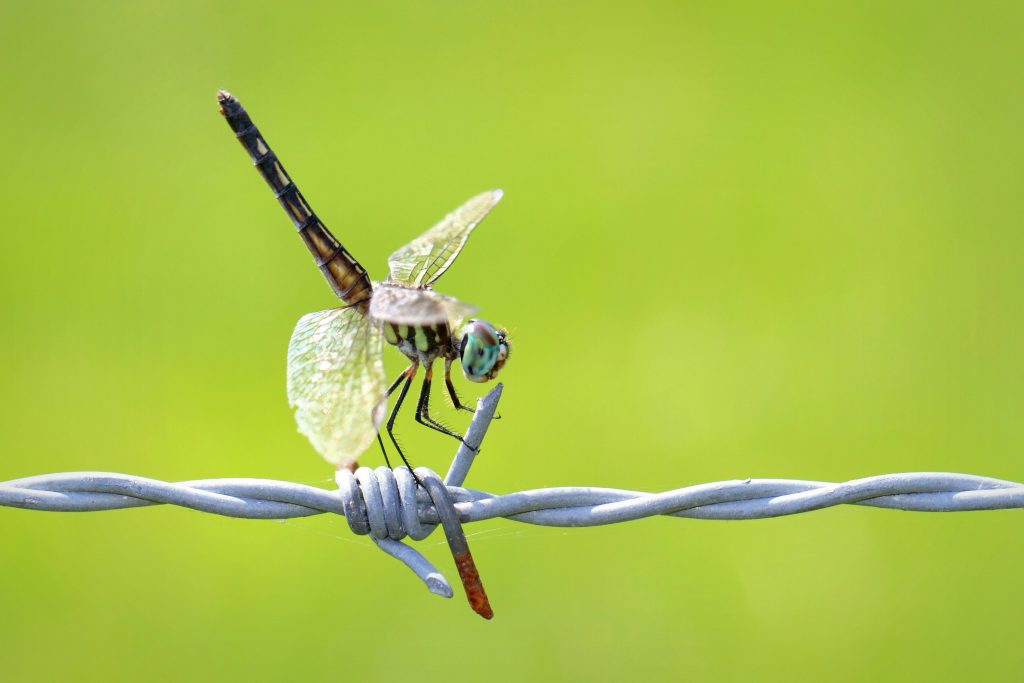What has happened to Belarusian ecoactivism and what does this mean for the country? Interview with Marina Dubina by Zerkalo.io.
Belarusian ecoactivism started with a handful of keen individuals. By the end of the 2010s it had become one of the hottest trends in the country, characterised by full halls of public discussion. Then, the movement abruptly disappeared. The battery factory, Katouka Park, and the nuclear power plant, stories known to many Belarusians, became forgotten headlines having fallen victim to censored media. Marina Dubina, ex-director of Ecohome, one of the oldest environmental organizations in Belarus, talks on the past, present and future of Belarusian ecoactivism. The organisation was shut down and declared “extremist” last year, but continues to work from abroad.
“Before 2020, there was an unspoken line: some things are possible, but those involving politics are forbidden”
“Ecohome used to run various activities: anti-nuclear campaigns, educational projects, training classes for activists and even local officials. Environmental rights are also important to us, of course. As an example, citizens did not like the destruction of the Katouka square in Minsk, the construction of a battery factory near Brest or a swine production facility near Maladziechna. We advised them and provided legal support.”
“There was, however, an unspoken line: some things are possible, but those involving politics are forbidden. Officials usually referred to the latter as everything that was controlled at the level of the Lukashenko administration. Activists dealing with such issues had always been persecuted.”
How ecoactivism became a trend for the whole country
Marina Dubina considers the rise of the environmentally friendly lifestyle to be a natural trend:
“This is a global trend and it starts with the individual: people read the composition of products more often, notice the amount of “produced” garbage and try to reduce it — buy less disposable tableware, carry a “bag for life” with them. Thanks to different initiatives and the media, people pay attention to what is happening around them. More and more, people want to influence where and how they live. What will be close to my house: a noisy highway or a green park?”
It was the same in Belarus — people began to challenge the authorities and influence their decisions. According to Marina, 2018 saw real vested interest on the part of Belarusian society.
“For example, the area of Sielhaspasiolak in Minsk,” the interlocutor recalls. “It is on the way from the Bangalore Square to the Zialony Luh district. A new metro line was built across the private residential area. The authorities planned to expand Maksim Bahdanovich Street and demolish part of the private residences. You look at the photo from the public hearing. The assembly hall was full to the point not everyone could get in. As a result, people stood up and demanded another venue or time for the hearing. For them, everything that happened to their native area was very important. There are plenty of similar examples from the end of the 2010s from various cities across Belarus. At the time, the officials were actually in touch with reality.”

The ecoactivist explains how broad public hearings led to positive effects for everyone, ordinary residents and government representatives alike:
“People are willing to participate in the environmental agenda, but they lack high-quality information. Official communication is ineffective, requirements are misunderstood, and individuals distance themselves from the core issue. Ironically, these same officials seek international funding for infrastructure and biodiversity projects from the World Bank or the European Bank for Reconstruction and Development. Such funding is not easy to attain —obligations must be fulfilled: legislation must be improved, and the people must be heard. Activist organisations that have accumulated expert experience are there as well: they help people with information and explain their rights, become part of working groups of ministries and lobby for necessary improvements. This is a process from which everyone ultimately benefited.”
In Marina’s words, individuals and movements, experienced in such work and bureaucracy, began to help others with similar issues.
“It was just a sweep of everything alive, moving”
Marina believes the problems of Belarusian activism began even before the events of 2020:
“It became much more difficult for organisations to operate as before, given the ramifications of the pandemic. Offline events and activity disappeared, and public discussions and meetings ceased completely.
But the real crisis, of course, began with the presidential elections in August 2020:
“All NGOs were affected. Thousands of organisations have either been dissolved by the authorities or have ceased operations of their own accord. Initially, many believed they would survive, or that the purge would come to a moderate end. Later, the illusions disappeared. It was simply a sweep of everything that was alive, that was moving, that expressed its attitude to what was happening. There are also environmental activists among the political prisoners, for such organisations and movements are considered to be dangerous structures: the authorities understand that experts in their fields, with a civic stance, can connect residents with the media, share their experience, inform, and act. Local officials received an order to ‘clean up’ – they simply worked through an entire list. I don’t think they approached the issue thoughtfully: I know of cases where organisations that were openly friendly to officials were dissolved.”

The Ecohome, the ecoactivist’s own organisation, was deemed to be “extremist” with far-reaching consequences across the country:
“In the past, we worked towards the implementation of the Aarhus Convention, to which Belarus was a party. The Convention was an incentive for the authorities to comply with the requirements of residents’ access to decision-making and the improvement of legislation. The notorious issues of demolition of the Asmalouka or construction at the Tsnianski reservoir were regulated by that very Convention. The public has since been disenfranchised by the authorities.”
The Aarhus Convention was initiated by the United Nations Economic Commission for Europe and signed in Denmark in 1998 by 38 countries. It imposes a number of obligations on signatory countries: providing public information on environmental issues and ensuring public participation in decision-making, access to justice. Belarus signed it in the same 1998: in July 2022, Lukashenka's decree ended the country's participation in the Convention.
The Special Committee, monitoring the fulfilment of the Convention’s obligations, recognised the dissolution of the organisation as a form of persecution and demanded that Belarus restore the registration of Ecohome. In protest against this decision, the authorities withdrew from the Aarhus Convention. This was unexpected: Belarus usually tries to remain a part of such projects albeit to achieve the bare minimum. One could say that such a step carried political and reputational risks for the country, but in hindsight, the Lukashenko Administration had nothing to lose. Funding from the West had already been reduced to a minimum in retaliation for Russia’s full-scale invasion of Ukraine. Citizens lost the most from our country’s withdrawal from the Convention: their environmental rights are no longer safeguarded at the international level.
“More than 100 organisations have already been dissolved by the authorities, starting with the larger and well-known. After their dissolution, most suspended their activities. 25 years of progress was wiped out. We are now compiling a list of organisations dealing with the environmental agenda, but as an example, what would the [Belarusian Republican Youth Movement] have to do with red listed species? Is an ordinary citizen really going to approach the BRYM or “Belaya Rus” to lodge a complaint regarding a factory’s harmful emissions? Individuals must now be very wary of their own safety.”
Cooperation at the state and academic level with European countries, that had real positive experience in solving environmental issues, is fading. Now we see the emergence of joint projects with Russia. Marina Dubina believes that all this will certainly affect the ecology of Belarus.
The task now is to preserve the accumulated experience
Some activists and organisations had to leave Belarus:
“Many initiatives have ceased their activities after the dissolution. Some ecoactivists moved to human rights. Some stayed and continued to work quietly, “without making noise”. It is not at all like it was before 2020, when attracting supporters and attention were the main tools.
Ecohome continues to inform the public about environmental problems and the relevant solutions, to advise those who reach out for help. We understand that citizens continue to live in Belarus, afraid of the expansion of factories and the resulting fumes and pollution. The people continue to demand information, and we therefore share our accumulated experience. We advise on effective action, how to write petitions and appeals, where to seek information. The reality is government agencies still have obligations, even under current laws, and people still have the right to demand fulfilment of the same. We cannot postpone these issues “until victory” and better times.”
The ecoactivist refers to a study that Ecohome conducted last year together with sociologists:
“31% of youth currently living in Belarus continues to be interested in environmental issues, and are ready and willing to enact change, even at the base level.”
"Belarus.Youth.Long Live" is a project created by the Belarusian National Youth Council "RADA" with the assistance of the human rights centre "Viasna" and the Human Rights House Foundation. RADA is an independent umbrella initiative that brings together various organisations of the youth sector, including Ecohome.
Marina Dubina explains that monitoring and receiving information about the real environmental situation in Belarus is one of the main challenges going forward:
“After the ‘cleansing’ of organisations, activists are afraid of reprisals for any activity. Therefore, adequate monitoring on the ground is severely lacking. I can’t give any data and examples of the deterioration of the situation because they simply don’t exist. No one has reliable data right now. For example, there used to be APB/BirdLife Belarus — a expert organisation that collected a lot of information on biodiversity issues. Having dissolved the organisation, the authorities took away the opportunity to work. All the opportunities and knowledge afforded to the APB/BirdLife Belarus is wasted.”
It is highly important to preserve the accumulated potential so that one day, the movement can be reignited:
“The main thing is to save people, and support them as much as we can.”
Source: Zerkalo.io




